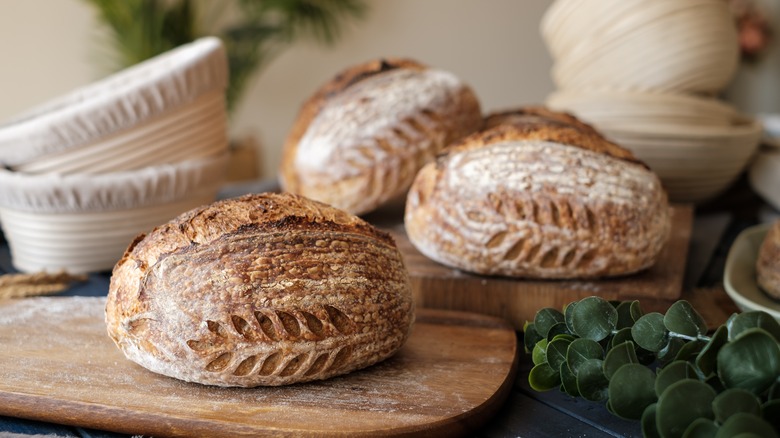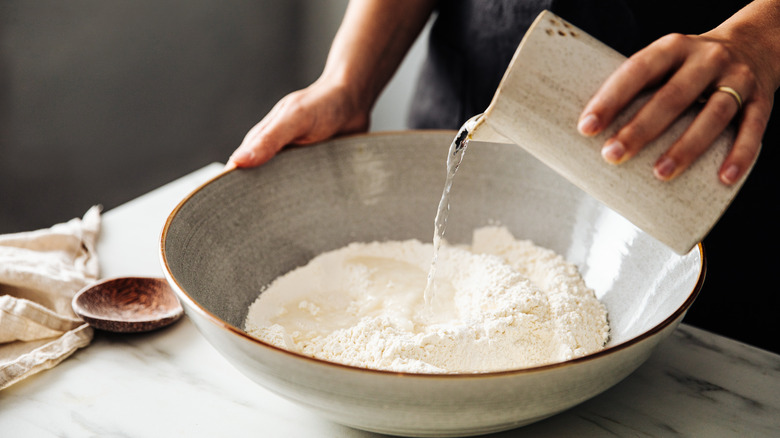This Is The Absolute Best Flour To Use When Baking Sourdough Bread
Baking sourdough bread can be such a challenging process that you might end up overlooking one of the most essential factors: what type of flour you're using. When you're looking at the best tips for working with sourdough, most revolve around the process of feeding and testing your starter. But sourdough, like all leavened bread, is the result of one big chemical reaction, and the success of that reaction is heavily dependent on the characteristics of what you're putting into it. While most water is pretty similar, and so is most commercial yeast, flour comes in different styles with important variables. So Tasting Table reached out to baking expert Nathan Myhrvold, founder of Modernist Cuisine and lead author of books like "Modernist Cuisine: The Art and Science of Cooking," "Modernist Bread," "Modernist Pizza," and the newly released "Modernist Bread at Home," for his opinion on the best flour to use when making sourdough bread.
Myhrvold tells us that "wheat flour is the fundamental building block of bread. But all flour is not created equal." According to him, the most important detail to pay attention to with your bread flour is the protein level, which is often listed on the bag in percentage terms. Myhrvold says, "Flours well-suited to bread making are referred to as 'strong' flours." He adds that at Modernist Cuisine, "We like to use bread flour with 11% to 13% protein content to make many of our breads, including sourdoughs."
High protein flours are what your sourdough bread needs
The best strong flours for your sourdough are often labeled as "bread flour" or "high-protein flour" — some will have the protein percentage printed right on them. The importance here is that the protein level of flour is directly related to the dough's ability to form gluten. "In bread making, it's exceedingly important," Nathan Myhrvold explains. "Think of gluten as the net that holds bread together." Gluten creation is actually a product of two different proteins in flour: gliadin and glutenin. The other essential element is water. Per the baker, "When these proteins come into contact with water during mixing, in a process known as hydration, they organize into strands called gluten."
It's not just the formation of gluten that makes flour's protein levels important to sourdough bread, but how much you are able to achieve. As dough is mixed, gas bubbles form that will eventually inflate during baking and form the webbed structure of the bread. "The more gluten a flour can produce, the more able the dough is to hold gas bubbles, and those gas bubbles are what give bread an open crumb," notes Myhrvold. His final piece of advice is that most bread flours on store shelves are in the 12% protein range, which should be good for sourdough, but it's essential to find out for sure in order to get the best possible results. Your bread is only going to be as good as the flour you start with.

